Text
here have 10 pieces of writing advice that have stuck with me over the years
every character’s first line should be an introduction to who they are as a person
even if you only wrote one sentence on a really bad day, that’s still one sentence more than you had yesterday
exercise restraint when using swear words and extra punctuation in order for them to pack a punch when you do use them
if your characters have to kiss to show they’re in love, then they’re not in love
make every scene interesting (or make every scene your favorite scene), otherwise your readers will be just as bored as you
if you’re stuck on a scene, delete the last line you wrote and go in a different direction, or leave in brackets as placeholders
don’t compare your first draft to published books that could be anywhere from 3rd to 103rd drafts
i promise you the story you want to tell can fit into 100k words or less
sometimes the book isn’t working because it’s not ready to be written or you’re not ready to write it yet; let it marinate for a bit so the idea can develop as you become a better writer
a story written in chronological order takes a lot more discipline and is usually easier to understand than a story written with flashbacks
74K notes
·
View notes
Text
my profs’ advice/comments on impostor syndrome –
“i’ll tell you how i’ve learned to deal with this sort of thing. i didn’t develop a sense of joy in my academic study until i realized that what really matters is the work itself. it’s not about trying to impress anybody or trying to earn a specific grade. it’s all about loving the work, the reading, the writing, the critical conversation. and i think you do love those things, and you do enjoy your academic work when you can get out of your own way about it. now, where i’m at in my career, i have to think about what gets me up in the morning, and that’s not publishing 20 articles a year or seeking external approval. what it is, is writing, reading, and teaching about what I love, my own little academic world that i’ve created.” – prof c
“i wrote shitty papers in college, and i still got a phd. you’re not supposed to know everything yet! you’re still learning! you know what, write that on a post-it and stick it on your laptop. you don’t have to know it all yet. you don’t have to be perfect.” – prof s
“while i can assure you that you should not feel like an imposter, i can also confess that the syndrome is common at all levels of academia – so you should not think yourself abnormal to be experiencing it.” (x)
“i hate to say/write this, but it’s sort of true: that you having these impostor-syndrome reactions, these worries about disappointing those you respect … to me, that sort of signals that you do have traits common to many successful academics! even people who have masses of success behind them – and, come to think of it, particularly the people who have a lot of cred *and* outside affirmation of it – suffer from impostor syndrome *if* (and the if is important) they genuinely care about the quality of their work. so: if it’s possible to think of these feelings as symptomatic of a characteristic many good academics share, then please do. (…) the important thing is this: how counterproductive it can be for self-sabotaging people to think of themselves as being ‘born’ to do something. it makes any possibility of missing the mark immediately existential. academic work is something one chooses because one has a strong interest in a certain field of study, an ability to study and produce credible work (as judged by ‘authorities’ in said field), and a social possibility to choose to proceed in that direction. sometimes, i, at least, find it helpful to remind myself of the simple facts of this. (…) i do think it’s important to put the activating gesture of entering grad school very firmly in your own hands. you are choosing this. you are choosing it because you want it, others have said that you are capable, and you have the practical possibility of choosing it. this is enough. the work will be enough without the existential heft, and the existential heft will not make the work better.” – s
from my lit teacher’s wife, an english prof at ucb who graduated from yale – ”yes—i feel like this often—and so does every person i’m close to in academia, and every graduate student ever. the key is to just feel the fear and do it anyway, especially when ‘do it’ means ‘write.’”
#advice#imposter syndrome#school advice#college advice#university advice#school#college#university#study#studyblr#inspiration#motivation
13K notes
·
View notes
Text

Criminal Minds Personal Aesthetic
#idk i just made it woth some stuff i relate to or inspires me#aesthetic#inspiration#motivation#criminal minds#criminal minds aesthetic#dr reid#spencer reid#dr spencer reid#emily prentiss#coffee#books#ace of spades#asexual#vans#fbi#fbi agent
43 notes
·
View notes
Photo
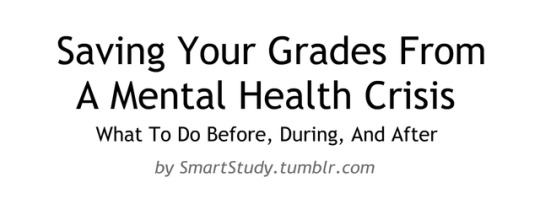
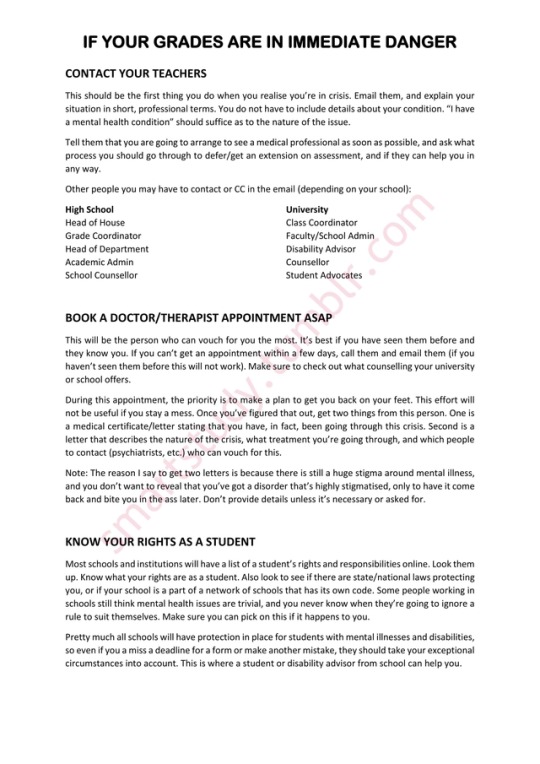

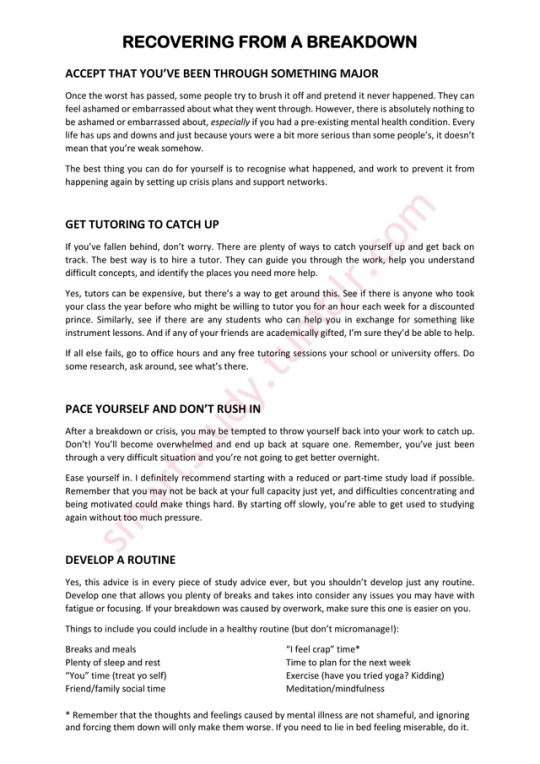
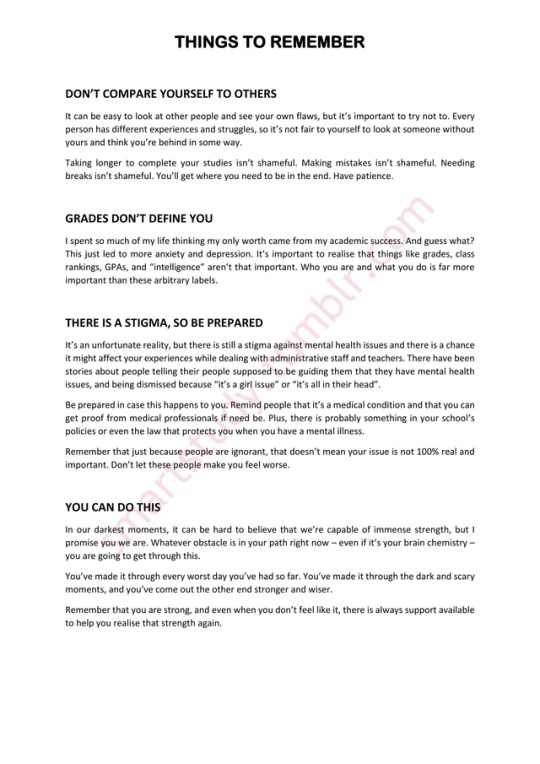
Hey guys. I’m glad to be finally posting my “mental breakdown survival guide”. As you know I struggle a lot with mental health, and so I have been through a lot of breakdowns. So many that I actually dropped out of university after 3 weeks in 2016 and had to take the whole year off. Because of this, I’ve made it my mission to help others with mental health issues as much as I can, so you don’t have to go through what I’ve been through.
Anyway, here is my guide. I tried to keep it general, and actually useful. If you have any questions or additions please feel free to add them.
And as ever, if you want to talk to me about studying with mental illness or want to see a post on a specific topic, please feel free to message me.
83K notes
·
View notes
Text

Aro/Ace Aesthetic
12 notes
·
View notes
Text

Dr. Spencer Reid
I don’t know if it’s canon or not but I like to think of Reid as ace :))
#spencer reid#dr spencer reid#criminal minds#character aesthetic#aesthetic#ace#asexual#ace pride#ace character#asexual character#books#smart#coffee#maps#I know what it’s like to be afraid of your own mind
149 notes
·
View notes
Photo
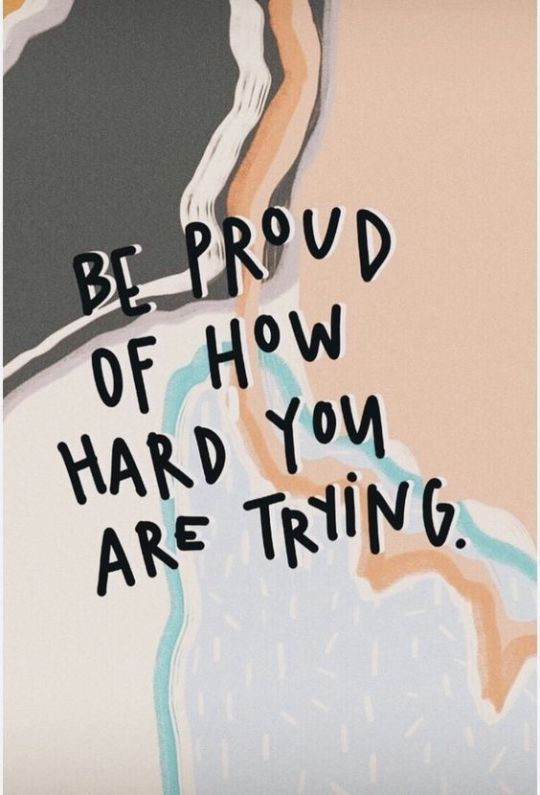




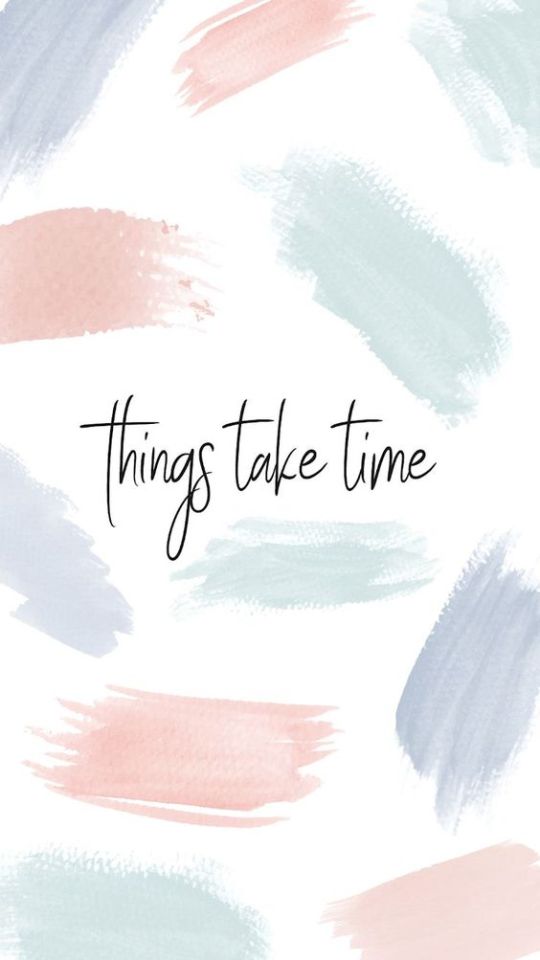
#MOTIVATIONALPOSTERMONDAY
9K notes
·
View notes
Photo


a gloomy October morning in Ljubljana
#study aesthetic#study#aesthetic#studyblr#inspiration#motivation#books#reading#october#autumn#fall#trees#leaves#coffee mug#water
7K notes
·
View notes
Text

217 notes
·
View notes
Text

Donna Moss
#character aesthetic#donna moss#the west wing#aesthetic#inspiration#motivation#study#coffee#pink#washington dc#west wing#whats next#studyblr
238 notes
·
View notes
Text
20 important study skills/tips i’ve learned from my professors
1. start studying a week before every quiz/test. seriously.
2. watch youtube videos/ted talks on the topics you are learning about.
3. get lots of sleep! sleep helps you process the day’s events, including what you learned.
4. write out your notes. it’s proven that handwritten notes help you learn better than typed out notes.
5. don’t just read what your professor gives you. find academic journals, books, etc. that correspond with your subjects.
6. read the news! especially in the social sciences/humanities, connecting concepts with current events helps you understand and process more easily.
7. exercise! this doesn’t have to be going on runs or lifting weights, it could even just be going for a 20 minute walk. just get your blood pumping, it’ll help you focus.
8. study at your desk. it may be tempting to study in bed, but your brain connects your bed with sleep, so you’ll get tired more quickly.
9. reviewing notes doesn’t have to be something you sit down and do for an hour. skim through them and test your memory while eating breakfast!
10. expand your study time throughout the day to avoid burnout. for example, rather than studying for 5 hours straight, study for an hour here and there in between your activities.
11. make your notes organized and easy to read, but not distracting. bright colors and flashy notes may seem better, but can sometimes distract from the purpose of the notes.
12. use apps such as quizlet. this way, you can go through definitions while waiting in lines or walking to class.
13. it’s more important to know concepts rather than facts. for example, you should be able to take what you know and apply it to different situations, not just the situation the textbook gives you.
14. just because the professor doesn’t require you to read textbook, doesn’t mean you shouldn’t. it helps explain concepts in a different way than your professor, and a lot of times hearing two different explanations for the same concept helps you understand it.
15. read in advance. read the textbook before your professor begins going over the chapter, so when he/she does, you can easily follow what they are saying.
16. do any extra credit work that comes your way. even if you don’t need the extra boost now, you might later.
17. go to class!! if you always skip class and show up at office hours completely lost on the concepts, they’ll laugh in your face. they’ll take you 100x more seriously if you show up.
18. however, if you are sick, take a day off. it’s more beneficial to you in the long run.
19. learn how to say “no”. if you have an 8 am the next day, don’t stay out until midnight with your friends.
20. don’t stress too hard over quizzes. if you expect them to go horribly, they will. you got this.
35K notes
·
View notes
Text
Actual advice on how to study for engineering courses from a first year student
Okay so I just finished my first semester in university and lets just say I’ve got to change my whole learning/studying style to be able to survive here. Here are some of the things I’ve learnt to do and will be doing in second semester:
1. Start backwards:
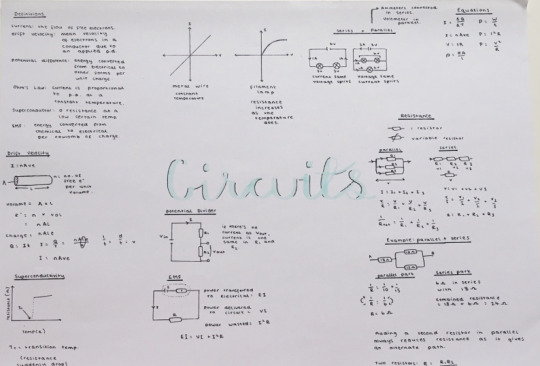
I highschool, you try to learn the subject by going to class, listening to the teacher, then going home, reading the textbook, then doing the homework, then making notes, then studying for the final. In engineering, you have to do this backwards: You will realize that you are going to be basically teaching yourself the content one way or another soon before the finals, so better start now. First, go through the past exams and past papers - make a list of all the major topics covered (example: if in an electrical circuits course, a question on a past final exam is “find the equivalent circuit using thevenin’s theorem” then write Thevenin’s theorem as a topic to be learned). Then go on youtube and find videos that explain each of these topics to you and make rough notes on these topics. (Reblog if you want me to make a master list of all the youtubers that teach engineering really well). Then go through he textbook and find sample questions not he theorem/topic you learnt off of youtube, and solve them. Then write your doubts in a notebook. Then go to class and have two notebooks open : one where you are taking notes of what the prof is saying, and one which has your practice problems solved, and see if the prof clarifies your doubts in the lecture. The lecture should be review of what you learnt at home!!!! Then, after class go to the prof and clarify any doubts. Then go home and make final notes on the topic. I like to make notes on cue cards (more on this later). Then go back to the final exam and see if you can solve the problem.
2. Make cue cards:
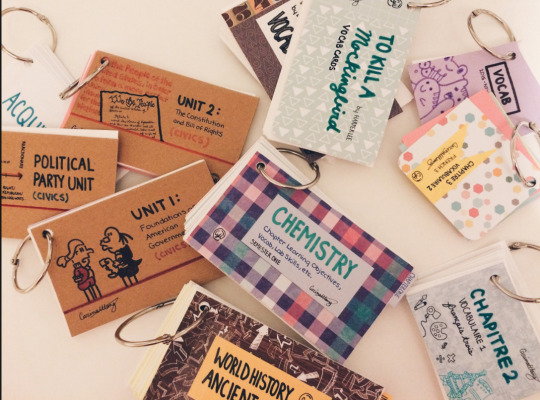
I like to get index cards and write a short note on how to solve each type of question I am likely to see on a final exam on each question card. Example: one cue card for “how to find resistance using wheatstone bridge” . I link the cue cards with a clip and its easier to carry the around and study.
3. Get pretty notebooks and organize your stationary. Its easier to stay focused when everything is pretty.
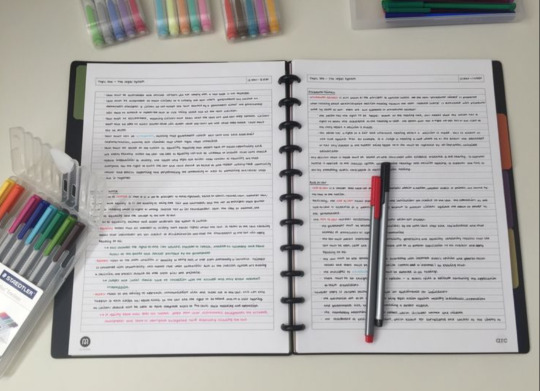
1K notes
·
View notes
Photo

677K notes
·
View notes
Photo

Thomas’ Suicide
16 notes
·
View notes
Text
“And every day, the world will drag you by the hand, yelling, “This is important! And this is important! And this is important! You need to worry about this! And this! And this!” And each day, it’s up to you to yank your hand back, put it on your heart and say, “No. This is what’s important.”
— Iain S. Thomas, I Wrote This for You (via amortizing)
23K notes
·
View notes
Photo

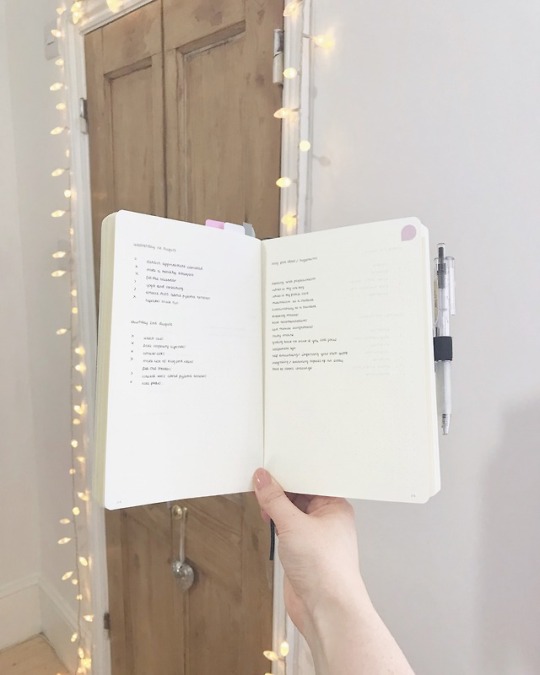
An amazing new coffee shop I went to this morning, and some more summer dailies ☕️☁️
5K notes
·
View notes
Photo

Who is Thomas Barrow?
#thomas barrow#aesthetic#downton abbey#character aesthetic#tea#reading#clocks#smoking#cigarette#letters#fire#burning letters#newspaper
19 notes
·
View notes